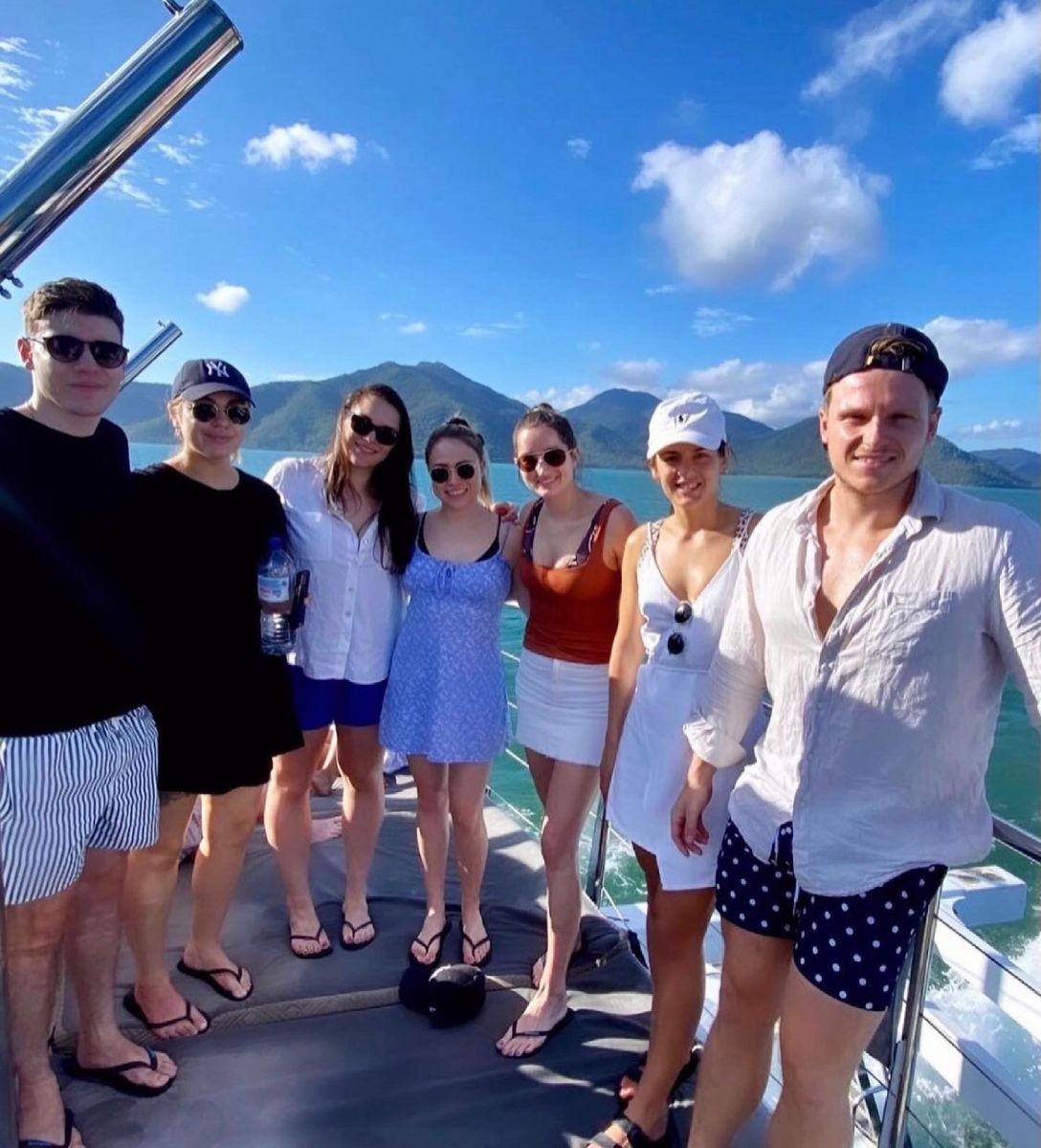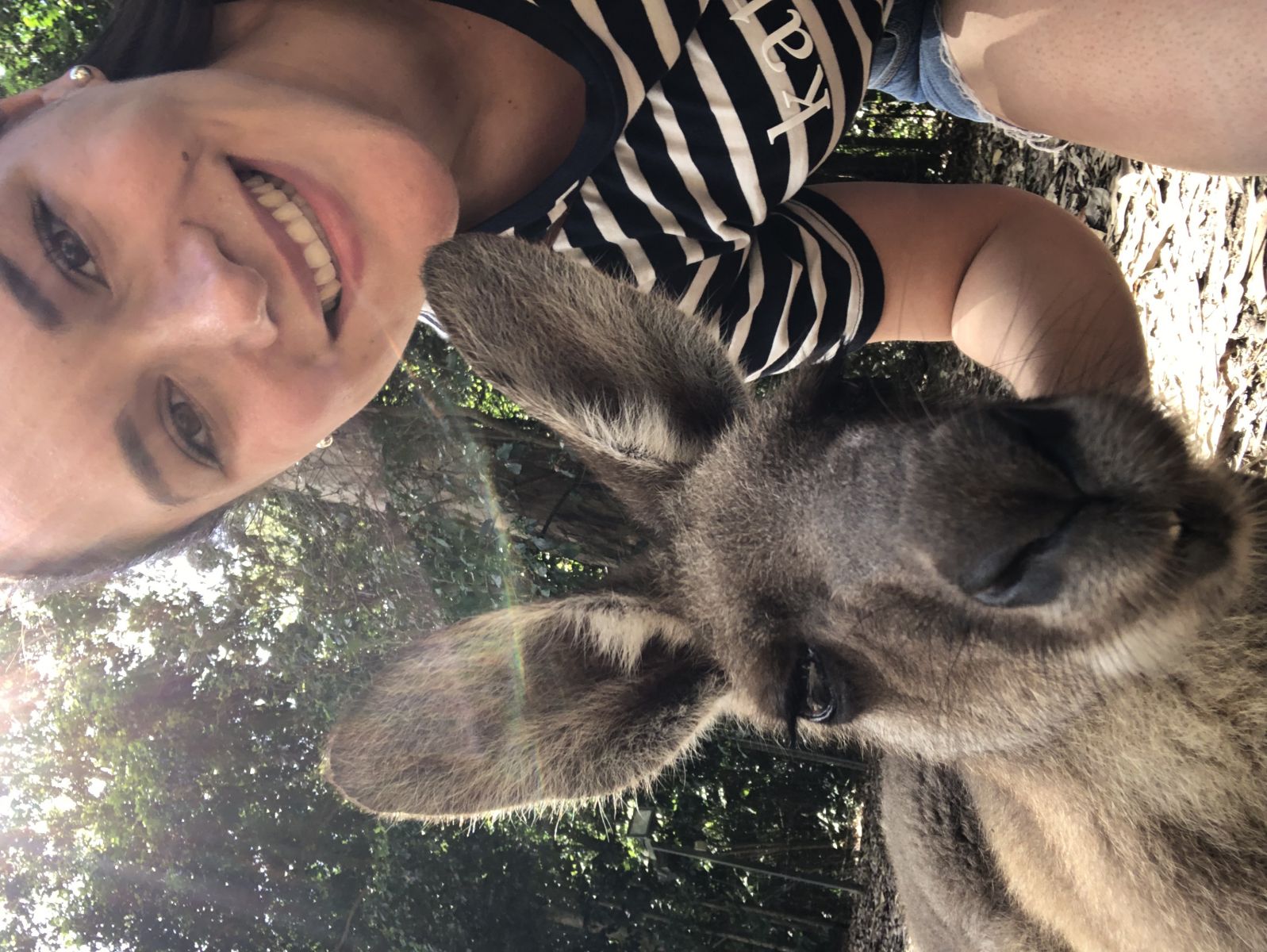3 August 2021
Taking a passion for rural health to hallowed halls of Harvard

For Dr Helena Franco, growing up in Brisbane and completing her undergraduate training on the Gold Coast made pursuing her career in the city the straightforward choice.
But a short GP work experience placement in high school gave her a taste of regional medicine and left a lasting impression. Now, this orthopaedic principal house officer at Cairns and Hinterland Hospital and Health Service is preparing to take her passion for rural health to the hallowed halls of Harvard. Helena recently shared with us what she loves about orthopaedics, the opportunities for training and the need in regional communities, her upcoming move to Harvard, and more…
Firstly, Helena, tell us about your background in medicine?
I chose medicine because it was the perfect combination of my love of science and my desire to help people. I completed my undergraduate degree at Bond University on the Gold Coast, did my internship with the Mater Hospital Brisbane and worked as the orthopaedic senior house officer at the Royal Brisbane and Women’s Hospital.
Why did you choose orthopaedics as your specialisation?
Orthopaedics jumped out at me from day one of my orthopaedic rotation in medical school. I think it suits my personality; I'm very procedural in how I think, I've always enjoyed doing things with my hands, and I love problem-solving. There is incredible diversity in the role. We deal with everything relating to the musculoskeletal system, we get to operate, and we also work in an outpatient setting where we build relationships with our patients. I think I have the best job in the world!
What would you say is your proudest moment as a surgeon?
I think my first solo operation is my proudest moment so far. It was really exciting to be able to set everything up, perform the procedure safely and then tell my supervisor it was done. The case itself was quite simple, but it gave me a great sense of accomplishment!
We know orthopaedics has traditionally been a male-dominated specialisation, with stats indicating just 3 per cent of orthopaedic surgeons are female. What’s been your experience coming into the field?
While it's traditionally been a male-dominated specialty, the percentage of women has increased in recent years. There are now policies and strategic plans in place encouraging women and diversity in orthopaedics. I've had a great experience in this regard because I've got wonderful mentors. There are many champions of change within orthopaedics who actively encourage women into the field and promote diversity.
What prompted you to leave Brisbane to do your training in Far North Queensland?
I had heard fantastic things from people who had come up to Cairns to work in orthopaedics, as well as in other specialties. They all spoke of great experiences with the hands-on yet supportive learning environment here. There was also more diversity in the types of cases and patient demographics in the regional and rural setting. Plus, the lifestyle of living up here in North Queensland really appealed to me as well!
Was the move straightforward or were there a few challenges along the way?
I think it was a combination of both! I embraced the challenge of moving, but I did receive a lot of support from the hospital as part of the relocation process. I have been very fortunate in mentors and supervisors – they’ve been supportive during this transition.
According to the stats, 83% of orthopaedic surgeons are based in major cities. Why do you think this is, and what impact do you think it has?
I think the tendency towards metropolitan areas is because that has been where the majority of the resources are located. Since graduating, I’ve done quite a bit of research on accessibility to surgery and I know there is an issue with patients in rural and remote areas accessing surgical care within our country. When people have delayed access to medical care or health education, we often see quite delayed pathology which can have a big impact on quality of life. As regional areas grow in population and funding increases for hospitals, there is an increased capacity to deliver care.
What was it that attracted you to the regional setting? And what have been some of the big benefits of doing your training out here?
I did a rural placement with a GP in Toowoomba in year 12 which got me excited for rural health. I think it was something that appealed to me; the ability to build strong relationships with your patients, to see interesting pathology and deal with all aspects of orthopaedics. You do have that wonderful opportunity to create a positive impact in someone's life.
Can you tell us about the Harvard scholarship and what the opportunity means for you?
It’s a two-year scholarship to study a Master's of global health delivery at Harvard Medical School. It was an incredible moment to get the phone call telling me I had been accepted. It was pretty unexpected; I didn’t think I was going to get it! It’s an honour to have had them read what I want to do and deem it worthy of financial support. I've got the opportunity to do a field project with a written thesis and dissertation in an area of global surgery. I'm hoping that I can do my project and something related to the privilege of providing orthopaedic care in rural and remote areas.
What do you hope to achieve from the experience?
Going overseas and learning from how other countries have implemented framework and policies to provide equitable access to surgery is exciting for me because it's hopefully going to give me the skills to do something similar here. I'm also really looking forward to this field project, it's going to be a wonderful opportunity to sink my teeth into a project that I can hopefully bring back to do something good for society.
What’s the plan once you’ve finished your Masters?
I’ve always been very set on working in a regional setting once I’ve finished training. I've benefited greatly from my time here, so when I come back, I would like to be able to continue training and developing skills in a regional centre.
What do you love most about the lifestyle in Cairns?
It’s the best of both worlds. You’ve got the reef right there and you're surrounded by rainforests - what more could you want than to spend your time in this kind of environment! I'm a very outdoorsy person so I love getting out to the reef for snorkelling and scuba-diving.
What would you say to someone considering orthopaedics?
I decided on orthopaedics because I had that ‘ah-ha’ moment where it clicked into place and just felt completely right for me. My advice for others is to try many specialties and explore the elements you enjoy most. If you’re interested in orthopaedics, then try to get a rotation during your internship. You could pick up a small research project with one of your registrars, have exposure to theatre or learn from fracture clinic. I really recommend giving orthopaedics a go - you might have the same ‘ah-ha’ as I did!
And in terms of those who may be deciding where to do their training, what would you say to encourage more people to look for opportunities in regional, rural or remote areas?
I think regional areas offer such exciting opportunities. It's very well supervised and we get wonderful access to the primary surgeon and plenty of time to work on procedural skills in theatre. You get to see and do things that you wouldn’t in the big centres. You’re surrounded by wonderful, like-minded people who have all come out here for the same reason – and there is every chance you’ll want to stay after you’ve done your training!

Find out more about Orthopaedic Surgery training
> Entry requirements
> Training Time
> How to apply
> Frequently asked questions
NQRTH is an initiative of the Australian Government's Integrated Rural Training Pipeline (IRTP) and is facilitated by James Cook University in partnership with public and private hospitals, Queensland Aboriginal and Islander Health Council (QAIHC), health services, Aboriginal Community Controlled Health Organisations (ACCHOs) and GP clinics.
Cairns region
(07) 4226 7138
Central West region
(07) 4764 1547
Mackay region
(07) 4885 7122
North West region
(07) 4764 1547
Torres and Cape region
(07) 4095 6103
Townsville region
(07) 4781 3424





